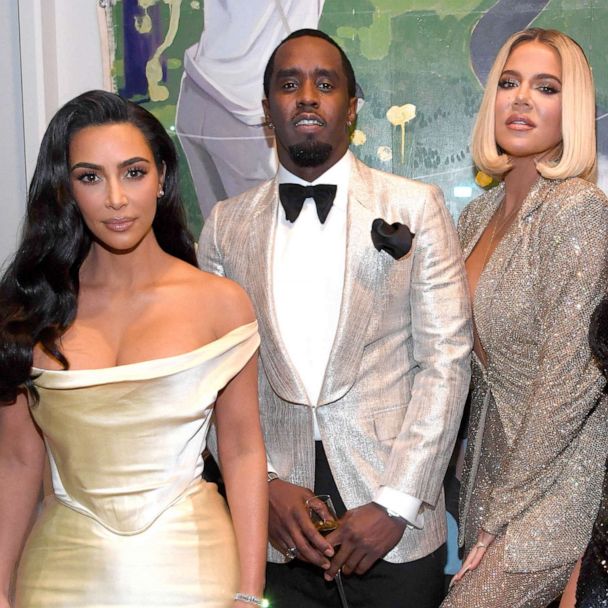In recent months, Sean “Diddy” Combs has found himself at the center of a maelstrom of controversy. A wave of allegations and resurfaced interviews have cast a shadow over his extensive network of celebrity interactions, drawing in names like Justin Bieber, Meek Mill, the Kardashian family, and LeBron James. This situation has prompted a re-examination of old footage and statements, adding fuel to an already blazing fire.

One particularly notable piece of media that has resurfaced is a nine-year-old interview in which Diddy comments on a provocative Kim Kardashian cover photo. In the interview, Diddy praised the cover for its boldness, stating, “I thought it was dope… freedom of expression. It was risky, and I think in life you should take risks while you can.” He added that he didn’t mind looking at it, which some interpreted as disrespectful to Kim Kardashian’s then-husband, Kanye West (often referred to as “Ye”).
The cover photo in question featured Kim Kardashian in a highly revealing pose, which was intended to break the internet and did indeed spark widespread discussion. Diddy’s comments at the time were seen as supportive of artistic freedom and the provocative nature of celebrity culture. However, in the current climate, these same comments are being scrutinized under a different lens.
The recent allegations against Diddy are severe, including accusations of sexual misconduct and inappropriate behavior. These allegations have prompted many to re-evaluate their past interactions with him and to consider the implications of his influence in the entertainment industry. The fallout has not been limited to Diddy alone; celebrities who have been associated with him are also under intense scrutiny. This has led to a surge in the re-examination of old interviews, social media posts, and public appearances involving Diddy and these celebrities.
The Kardashian family’s connection to Diddy has been particularly highlighted. Some conspiracy theories suggest a secretive and possibly problematic relationship between the Kardashians and Diddy. Although these theories lack substantial evidence, the resurfacing of old interviews and interactions feeds into the public’s curiosity and suspicion.
In the context of the resurfaced interview about Kim Kardashian’s cover, the emphasis on Diddy’s reaction underscores the broader cultural critique of celebrity interactions and the power dynamics at play. It’s important to note that Diddy’s remarks, while seemingly innocuous at the time, are now viewed through a more critical and perhaps cynical lens given the allegations against him.
This situation reflects a larger trend in which past behaviors and statements are being re-examined in light of new information. The #MeToo movement and other social justice efforts have created an environment where accountability is paramount, and historical actions are no longer easily dismissed. For celebrities like Diddy, this means that their entire public and private histories are under scrutiny, and for those associated with them, it means navigating a delicate and potentially damaging association.
The Diddy controversy illustrates the complex and often precarious nature of celebrity culture. As allegations mount and old media is reinterpreted, the line between public persona and private behavior becomes increasingly blurred. For Diddy and those within his orbit, the consequences of past actions and statements are now being felt more acutely than ever. This situation serves as a reminder that in the digital age, nothing stays buried forever, and the court of public opinion can be both unforgiving and relentless.





